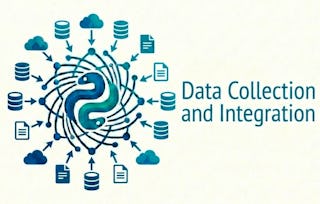Dans ce cours, vous apprendrez à utiliser les poids d'enquête pour estimer des statistiques descriptives, comme les moyennes et les totaux, et des quantités plus complexes comme les paramètres des modèles pour les régressions linéaires et logistiques. Les possibilités offertes par les logiciels seront abordées, en particulier R®. Le cours abordera également les bases du couplage d'enregistrements et de l'appariement statistique, deux méthodes de plus en plus importantes pour combiner des données provenant de différentes sources. La combinaison d'ensembles de données soulève des questions éthiques que le cours passe en revue. Il peut être nécessaire d'obtenir le consentement éclairé des personnes pour autoriser le couplage de leurs données. Vous découvrirez les différences entre les exigences légales des différents pays.

Combiner et analyser des données complexes

Combiner et analyser des données complexes
Ce cours fait partie de Spécialisation Collecte et analyse des données d'enquête

Instructeur : Richard Valliant, Ph.D.
9 389 déjà inscrits
Inclus avec
69 avis
Compétences que vous acquerrez
- Catégorie : Analyse statistique
- Catégorie : Intégration de données
- Catégorie : Régression logistique
- Catégorie : Modélisation statistique
- Catégorie : Stata
- Catégorie : Consentement éclairé
- Catégorie : Éthique des données
- Catégorie : Analyse de régression
- Catégorie : STATA (Logiciel)
- Catégorie : Échantillonnage (statistiques)
- Catégorie : La programmation en R
- Catégorie : Statistiques descriptives
- Catégorie : Logiciel d'analyse des données
Détails à connaître

Ajouter à votre profil LinkedIn
4 devoirs
Découvrez comment les employés des entreprises prestigieuses maîtrisent des compétences recherchées

Élaborez votre expertise du sujet
- Apprenez de nouveaux concepts auprès d'experts du secteur
- Acquérez une compréhension de base d'un sujet ou d'un outil
- Développez des compétences professionnelles avec des projets pratiques
- Obtenez un certificat professionnel partageable

Il y a 4 modules dans ce cours
Après avoir suivi les modules 1 et 2 de ce cours, vous saurez comment estimer les statistiques descriptives, globalement et pour les sous-groupes, lorsque vous traitez des données d'enquête. Nous passerons en revue les logiciels d'estimation (R, Stata, SAS) avec des exemples d'estimation de moyennes, de proportions et de totaux. Vous apprendrez également à estimer les paramètres des modèles linéaires, logistiques et autres et à connaître les options des logiciels, en particulier R. Les modules 3 et 4 traitent de la manière dont vous pouvez ajouter des données supplémentaires à votre analyse. Pour ce faire, vous devez connaître les techniques de couplage d'enregistrements et savoir ce qu'il faut faire pour obtenir l'autorisation de coupler des données.
Inclus
7 vidéos6 lectures1 devoir
Le module 2 explique comment estimer les paramètres des modèles linéaires et logistiques à l'aide de données d'enquête. À l'issue de ce module, vous comprendrez en quoi les méthodes utilisées diffèrent de celles qui s'appliquent aux données non issues d'enquêtes. Nous couvrons également les caractéristiques des ensembles de données d'enquête qui doivent être prises en compte lors de l'estimation des erreurs standard des paramètres estimés du modèle.
Inclus
8 vidéos8 lectures1 devoir
Le module commence par le débat actuel sur l'utilisation d'un plus grand nombre d'enregistrements administratifs (couplés) dans le système statistique fédéral américain, et par une motivation générale pour coupler les enregistrements. Plusieurs exemples seront donnés sur les raisons pour lesquelles il est utile de relier les données. Les défis posés par le couplage d'enregistrements seront discutés. Un bref aperçu des principales techniques de couplage est également inclus.
Inclus
4 vidéos12 lectures1 devoir1 sujet de discussion
Ce module aborde les questions clés liées à l'obtention du consentement pour le couplage d'enregistrements. L'absence de consentement peut conduire à des estimations biaisées. Des exemples de recherches actuelles seront donnés, ainsi que des suggestions pratiques sur la manière d'obtenir le consentement au couplage
Inclus
5 vidéos3 lectures1 devoir
Obtenez un certificat professionnel
Ajoutez ce titre à votre profil LinkedIn, à votre curriculum vitae ou à votre CV. Partagez-le sur les médias sociaux et dans votre évaluation des performances.
Instructeur

Offert par
En savoir plus sur Analyse des Données
 Statut : Essai gratuit
Statut : Essai gratuitUniversity of Colorado Boulder
 Statut : Prévisualisation
Statut : Prévisualisation Statut : Essai gratuit
Statut : Essai gratuitUniversity of Maryland, College Park
 Statut : Essai gratuit
Statut : Essai gratuit
Pour quelles raisons les étudiants sur Coursera nous choisissent-ils pour leur carrière ?

Felipe M.

Jennifer J.

Larry W.

Chaitanya A.
Avis des étudiants
- 5 stars
53,62 %
- 4 stars
24,63 %
- 3 stars
11,59 %
- 2 stars
4,34 %
- 1 star
5,79 %
Affichage de 3 sur 69
Révisé le 11 févr. 2021
Great course! Thanks, Professsor Valliant and Professor Frauke Kreuter.

Ouvrez de nouvelles portes avec Coursera Plus
Accès illimité à 10,000+ cours de niveau international, projets pratiques et programmes de certification prêts à l'emploi - tous inclus dans votre abonnement.
Faites progresser votre carrière avec un diplôme en ligne
Obtenez un diplôme auprès d’universités de renommée mondiale - 100 % en ligne
Rejoignez plus de 3 400 entreprises mondiales qui ont choisi Coursera pour les affaires
Améliorez les compétences de vos employés pour exceller dans l’économie numérique
Foire Aux Questions
Pour accéder aux supports de cours, aux devoirs et pour obtenir un certificat, vous devez acheter l'expérience de certificat lorsque vous vous inscrivez à un cours. Vous pouvez essayer un essai gratuit ou demander une aide financière. Le cours peut proposer l'option "Cours complet, pas de certificat". Cette option vous permet de consulter tous les supports de cours, de soumettre les évaluations requises et d'obtenir une note finale. Cela signifie également que vous ne pourrez pas acheter un certificat d'expérience.
Lorsque vous vous inscrivez au cours, vous avez accès à tous les cours de la spécialisation et vous obtenez un certificat lorsque vous terminez le travail. Votre certificat électronique sera ajouté à votre page Réalisations - de là, vous pouvez imprimer votre certificat ou l'ajouter à votre profil LinkedIn.
Oui, pour certains programmes de formation, vous pouvez demander une aide financière ou une bourse si vous n'avez pas les moyens de payer les frais d'inscription. Si une aide financière ou une bourse est disponible pour votre programme de formation, vous trouverez un lien de demande sur la page de description.
Plus de questions
Aide financière disponible,

